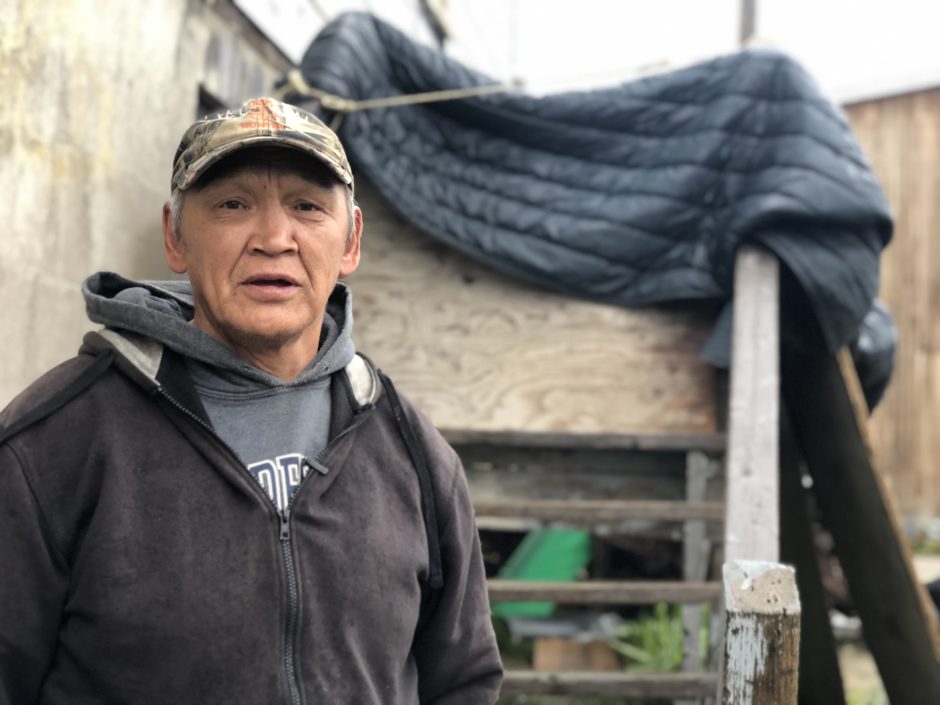October 15, 2019
"What are you going to do tonight?"
"Don't know yet."
"Are you going to sleep here?"
"I can't.… It's wet and cold."
"What can you do? Can you go to—"
"My friend’s house."
This is part of my conversation with Abele Ikkusek. It's a chilly day in early September, the wind picking up and the rain already coming down, part of a storm front pushing through.

We are standing by his makeshift shelter. One sleeping bag is propped up on some supports on the porch at the top of some steps behind the old council hall. Another sleeping bag is on the floor.
"So this is where I sleep every night when it's a fine day but not tonight, it's wet. My sleeping bag is wet and my boots and my sneakers are wet," he says.
Ikkusek says he's been trying to get a place to stay through the Torngat Regional Housing Association for the last five years. He isn't comfortable staying with other people, though sometimes, on nights such as this, he has to.
I first came across Ikkusek at the Atsanik Lodge, the only hotel in town. He was vacuuming. It's a job but that, together with the $267 he gets through social assistance, doesn't amount to much, he says.
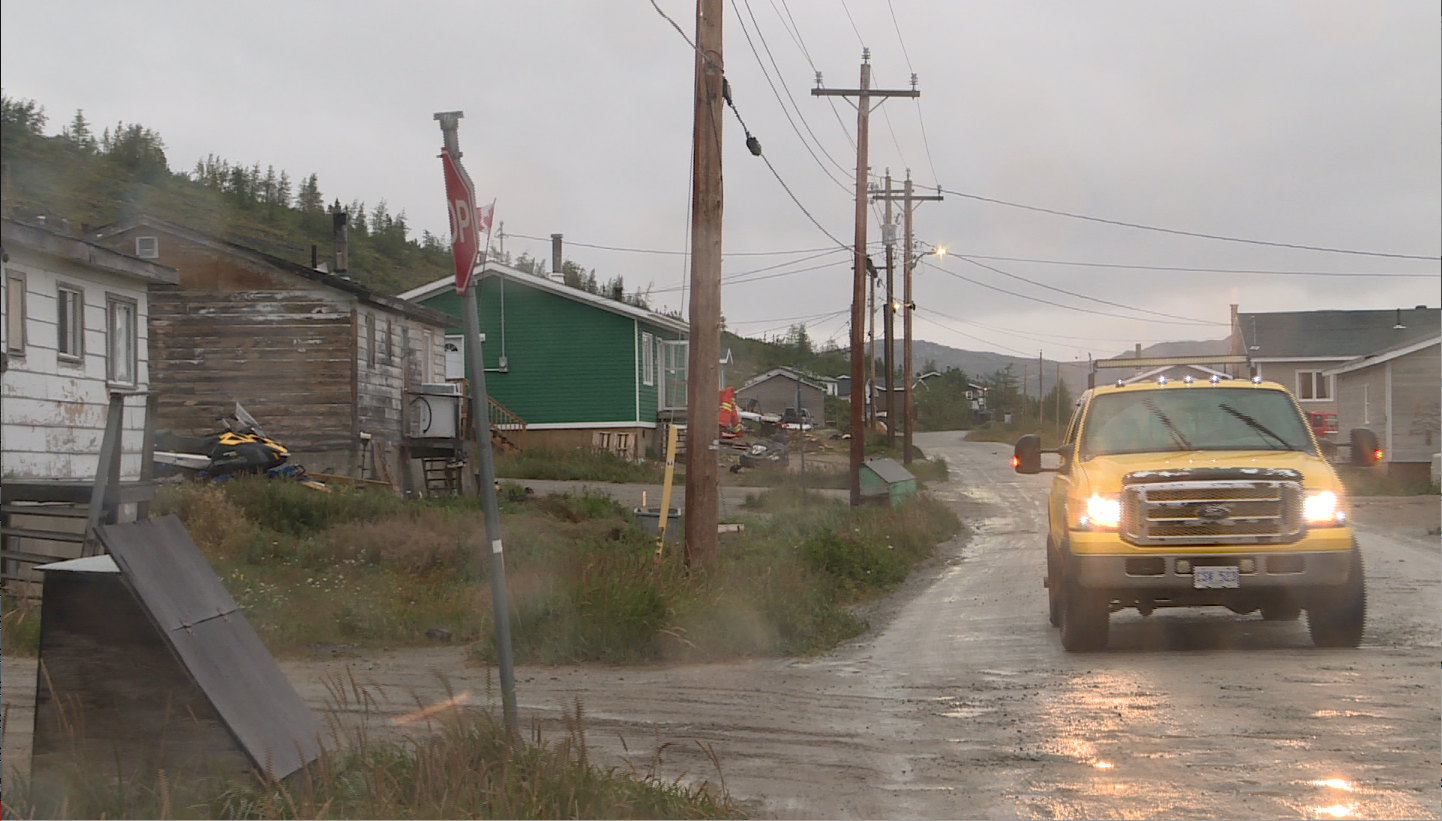
"Making pocket money so I can eat and smokes … sometimes drinks," he says.
He also tells me about time he spent working, helping to construct the still unopened Illusuak cultural centre. While earning a paycheque there, he continued receiving his welfare cheque from the government, leaving him with a hefty debt that still hasn't been paid.
“$9,849.50,” he says with precision. “Yeah, I made a mistake.”
Ikkusek nods when I ask him if sobriety is something he's struggled with. His mother died about a decade ago — she choked on hardtack, he tells me while driving a snowmobile — and his father, who was involved with the Moravian church and played in its brass band, died just two years ago.
“They’re gone now. I got nothing after they left me,” he says. He adds he has felt suicidal in the past, but no longer feels that way.
He says he is dealing with the loss of his parents, and when he is sober, he cries.
"Every night I drink. Every night because [I'm] thinking about my dad too much, that's why I drink," he says. "Every night I think about my dad and mum."
Ikkusek also likes to “bawl,” another term for shouting.
"When I'm alone I bawl and I feel better," he explains. Then he pauses, looks at me and asks if he can demonstrate..
I nod.
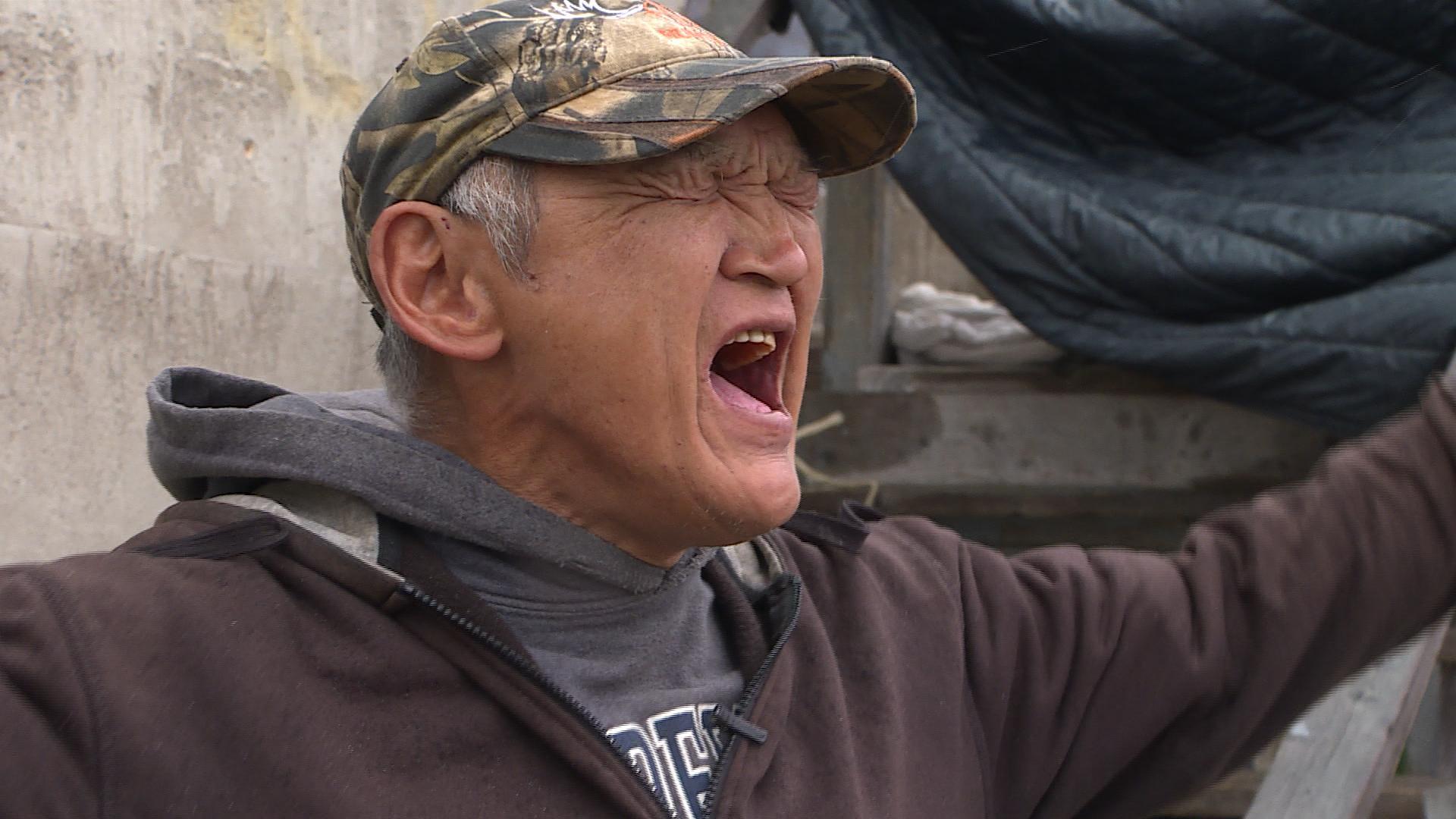
"Aaaaaaaahhhhhhh!" he yells.
"When we bawl, we feel better. it's a good feeling after you bawl," he says. "Let it all out and bawl. When you're walking alone, just bawl. It helps."
Ikkusek has friends, he tells me, who are helping him, encouraging him to go to Happy Valley-Goose Bay for the winter and stay in a shelter. He says he wants to get counselling there. He is also optimistic they will help him get a house next year.
He tells me their names — Pastor Junior and Richard Kent — and says I should go talk to them.
Pastor Junior
I find Clarence Andrews in a house attached to the Pentacostal church in town. He's the town pastor and he says people call him Junior, so: “Pastor Junior.”
Andrews is waiting for Ikkusek to swing by. He's getting him in touch with a homeless shelter in Happy Valley-Goose Bay — somewhere to stay warm for the winter.
The pastor tells me Ikkusek is a regular Sunday night attendee at the church and is very helpful when it comes to cleaning up and things like that.
"I'm not 100 per cent sure why Abele doesn't have a place of his own," Andrews says. "There are single dwelling places that are being built now … and there might be a reason, I just don't know what that reason is."
He says it's his understanding that Ikkusek has found places to stay at times, but that when money does come in, he spends it on his addiction.
"He takes advantage of that situation and [is] under the influence for a few days and then goes back and then doesn't have the money to pay up or help out at the home where he's staying so unfortunately he's been evicted in those cases," he says.
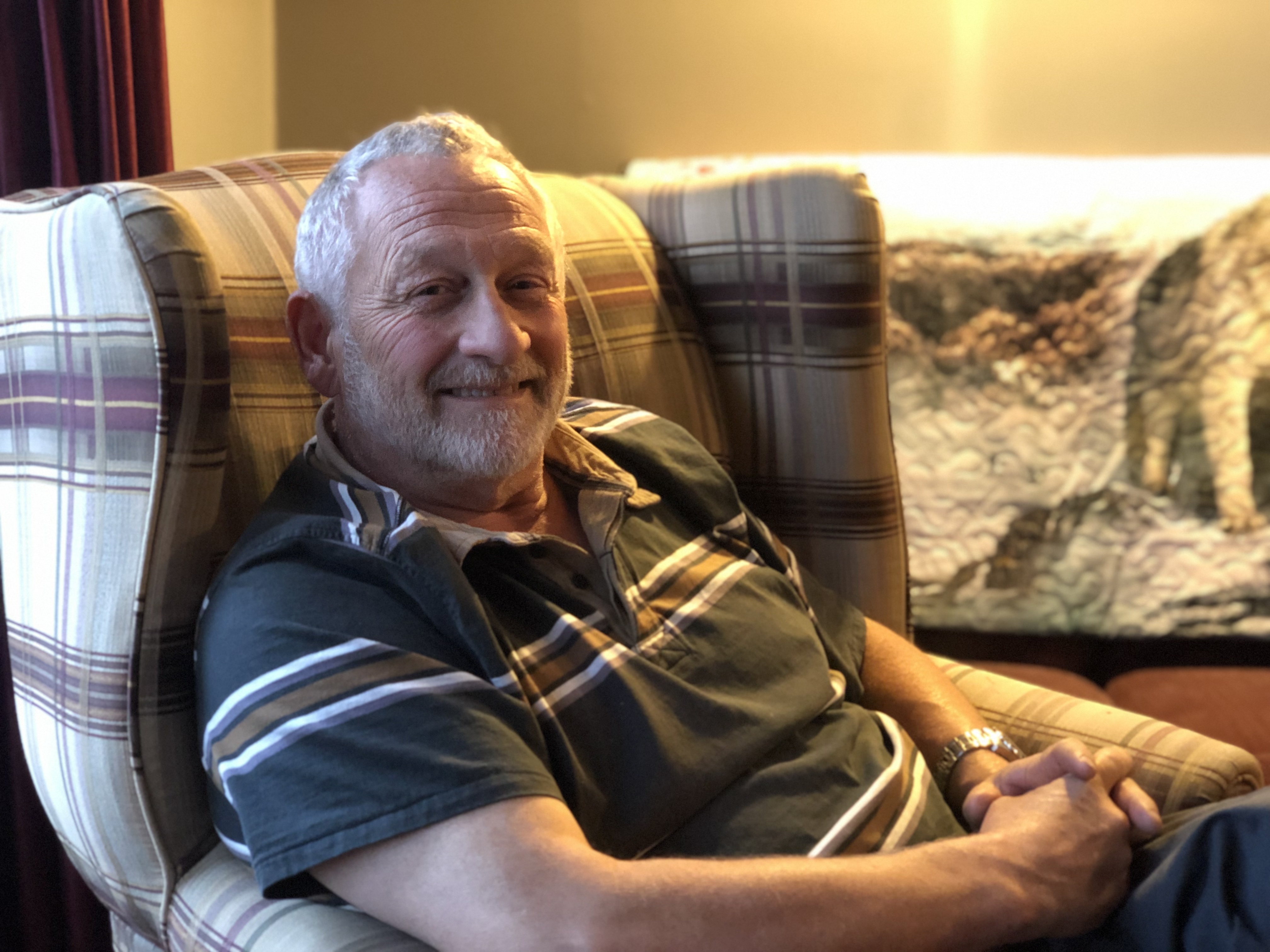
Andrews says housing has long been a problem in Nain but he has recently seen an improvement for people who have been seeking homes in the community.
"I can look back and see that there are quite a few who were homeless or call themselves homeless that are now into homes," he says. "Because Abele is the one who usually brings this up to me, I just wonder why he hasn't got one."
Richard Kent
I meet Richard Kent in the lobby of the Atsanik Lodge. He’s wary of doing an on-camera interview but does eventually agree; he says he’d do anything to help his good friend.
"He's living under a step, which to me, is shameful and disturbing," Kent says. "You're not supposed to be disregarded by everyone else because you're an alcoholic — that's a sickness."
He has worked with Ikkusek on construction projects in the past. All the guys liked him, he tells me. They all want to help him.
"I just want to see him off the street, plain and simple," Kent says.
"He lived in tents, he lived under people's basements, crawlspaces — he lived in our containers under scaffolding. Wherever he can make a place to lie down his head at night, that's where he lies down.
"I'm afraid one of these days I'm going to find him and he's going to be dead."
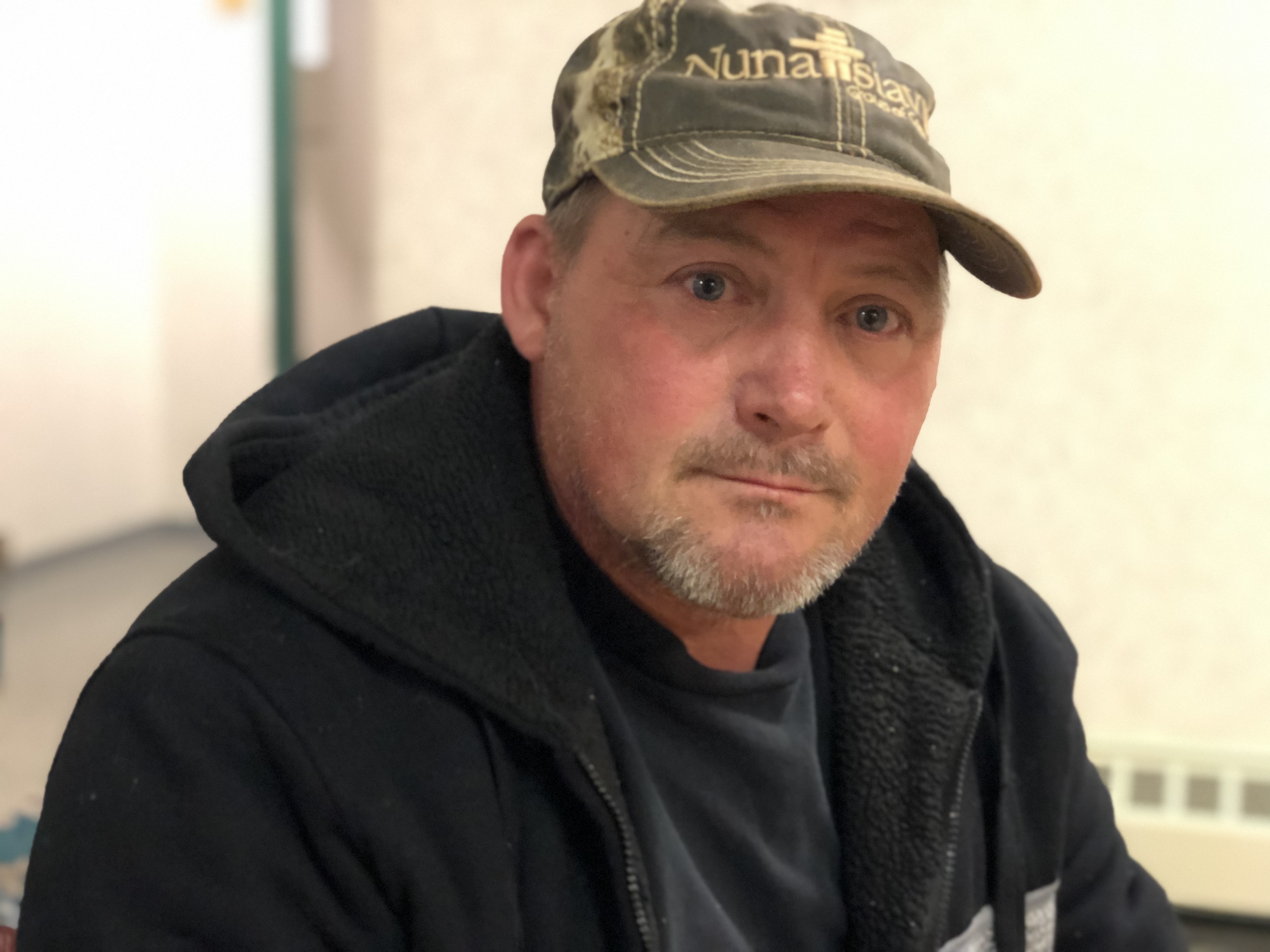
He has been in touch with shelters outside Nain in the hopes of getting Ikkusek inside for the winter. If not, Kent fears for his friend’s health.
"I just thought more people in the community would step up to the plate and say, ‘No, this isn't how life is supposed to be here,’" Kent says.
The shelter would just be temporary, though; Kent would like to see a permanent solution for Ikkusek.
"At least I'd know that he's got a chance," Kent says. "He's got a good heart, he'd do anything for anyone, but he can't do nothing for no one because he's got nowhere to go."
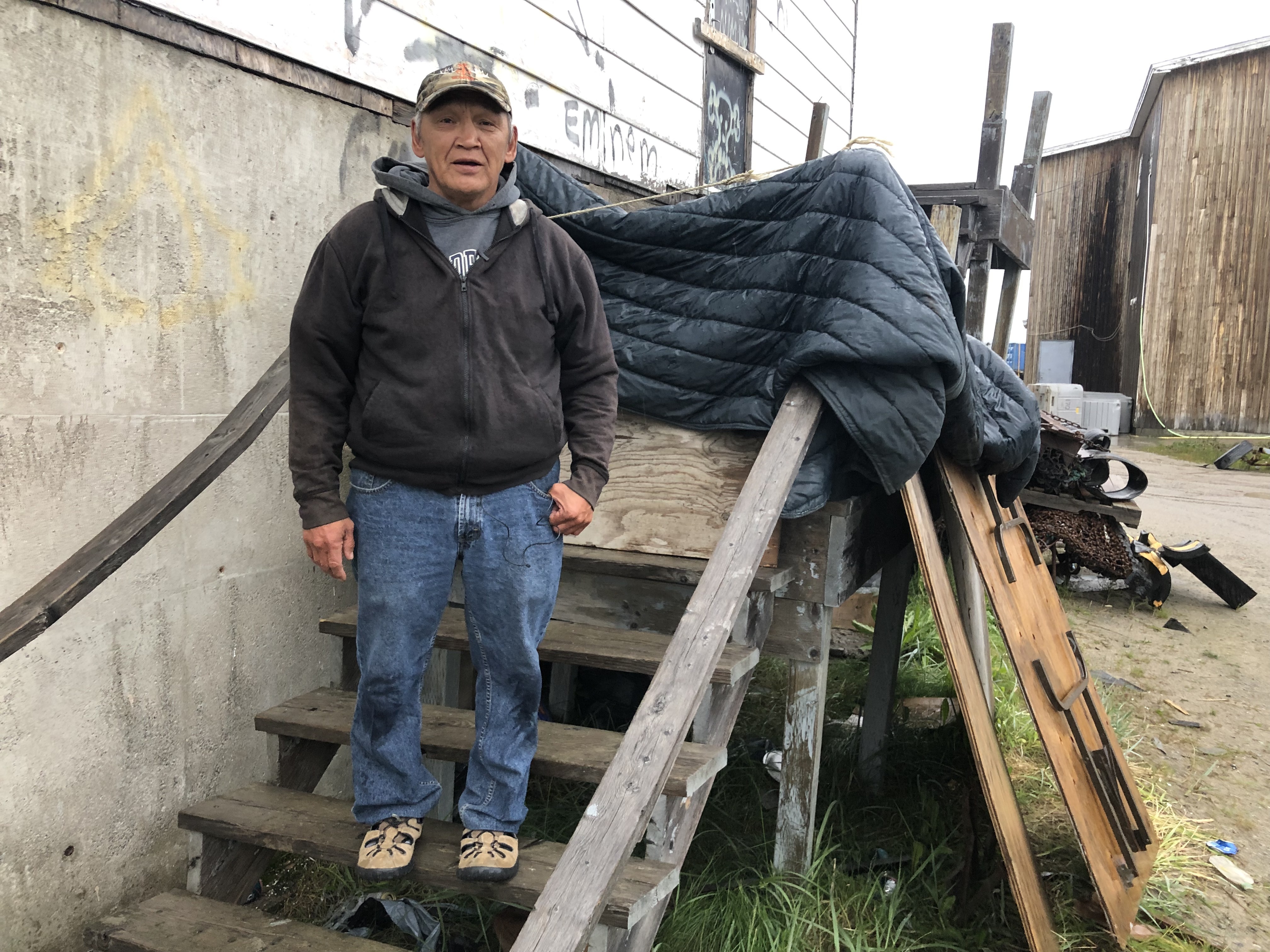
It’s October now, so I check in with Kent to see if his efforts to get Ikkusek into a shelter have been fruitful.
He tells me Ikkusek is now sleeping in a truck.
He also says that late this month the emergency shelter in Happy Valley-Goose Bay will be taking him in — good news for this winter but still far from a permanent solution.
Hope for housing
The lack of housing has been labelled a crisis in Inuit regions of Canada, and Nunatsiavut is no exception.
Funding is tight, and housing is expensive to create. Right now, the situation is grim.
"We don't have any units available, that's the thing, and we have a huge list," says Margaret Fox, chair of Torngat Regional Housing Association.
"There's a lot of people that ends up falling through the cracks.”
Fox says she can't comment on Ikkusek's situation directly but can speak about how some cases might hit roadblocks.
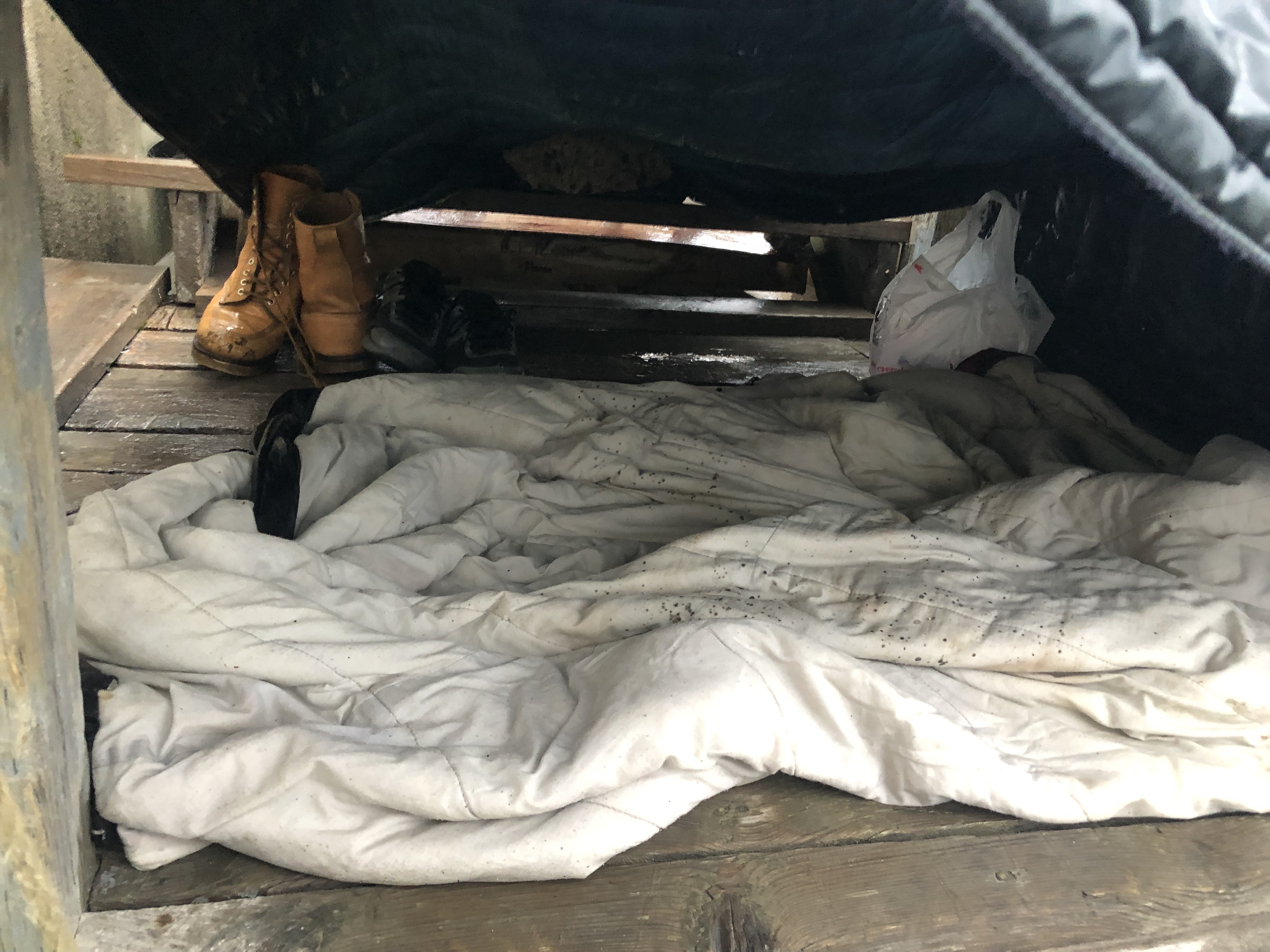
It’s hard to build a house for someone who has trouble paying their bills or maintaining a home, she said.
"If somebody, for example, is in major arrears with Hydro, they can't get their hydro hooked up to their house."
There are units they hold to rent to very low-income individuals, she says, but there are only two and they are almost always full.
Fox says questions are best put to the Nunatsiavut government, so I contact them.
Eventually I am put in touch with First Minister Kate Mitchell.
She tells me housing isn't just a problem for low-income earners. People with all levels of income can have trouble finding somewhere to live.
"It is very sad, you know, that we still have people that are homeless and we still have people, you know, that are living in homes that are not safe and overcrowded conditions," she says.
"We just continue to work and try to find ways that, you know, we can deal with it and hopefully make a difference."
'Keep trying. Don't be scared'
I have not spoken with Ikkusek since he found out about the shelter in Happy Valley-Goose Bay but there was another moment in our interview that still resonates.
He told me he was happy to have the chance to speak with me and that he felt positive about things, knowing that he has friends helping him, and he said he had a message he wanted to get out.
"I’m glad I’m talking about my feelings and my hurts and now I struggle hard for help," he said.
“I struggle hard for help. I tried [to ask] people where to go to get help. Finally I got help … and I wish all you people out there who’s homeless like me, keep trying. Don’t be scared. Be brave, don’t be scared to talk, let it out. That’s what I’m doing."
